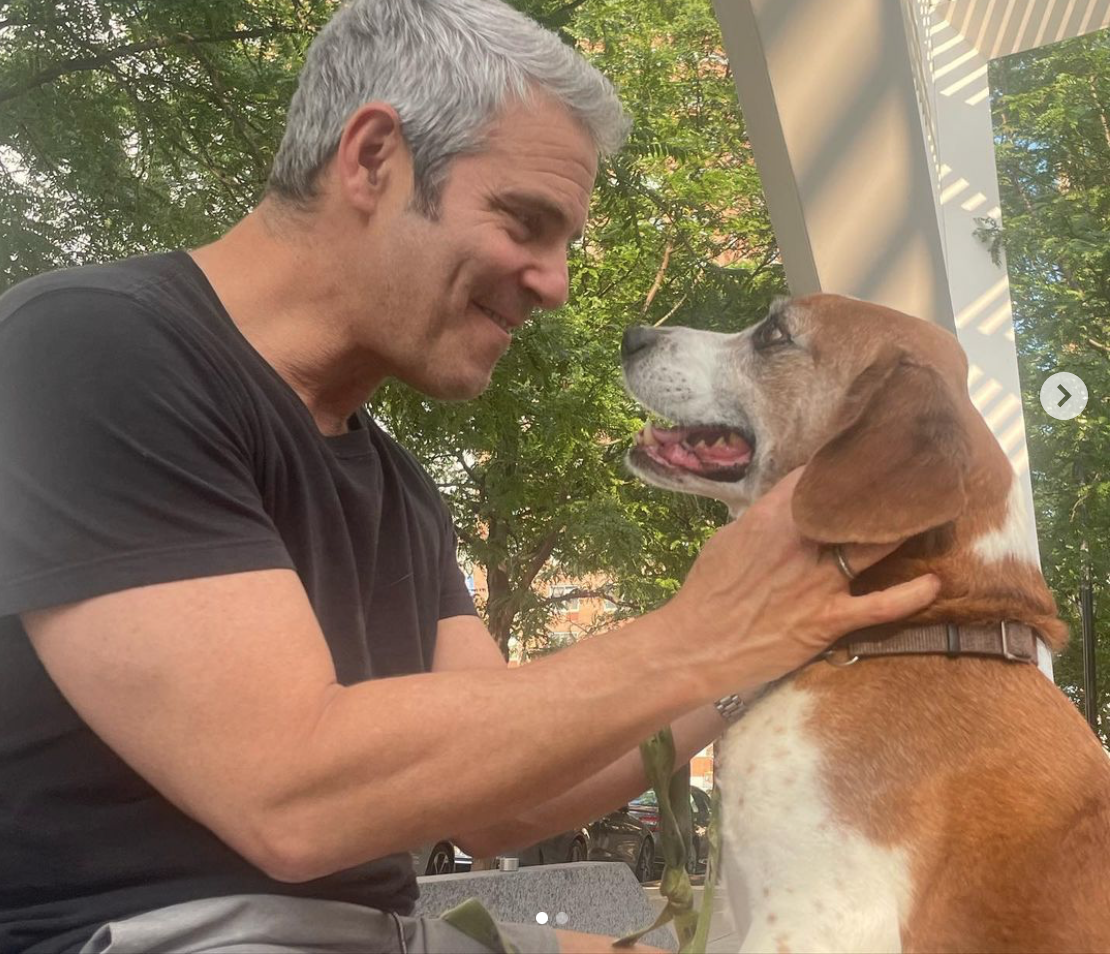For decades, Bravo reality T.V. mogul, Andy Cohen, has given millions of viewers a welcome distraction from the drama of their own lives. His Watch What Happens Live segments highlight the latest fur-flying incidents of the Housewives and Below Deck franchises. Not my cup ‘o joe. Then again, neither are monster truck rallies.
But Cohen has given much more: a sense of dignity and vindication for pet parents who, for reasons some will never understand, made the heart-wrenching choice to re-home their pets.
In 2013, Cohen adopted Wacha, “My first baby, my beautiful rescue puppy . . . my pride and joy,” Cohen wrote on Instagram. Over the next seven years, however, Wacha showed random signs of aggression which continued despite extensive training efforts.
Following an undisclosed “incident” in early 2020, Cohen consulted with numerous professionals. They concluded that Cohen’s home was not an optimal environment for Wacha and that keeping him could be dangerous for Cohen’s then one-year-old son, Ben.
Fortunately, Wacha found his forever home with his second family: the place he stayed while Cohen was out of town. Cohen visits regularly and reports that Wacha is thriving. “He’s happy, which gives me peace of mind.”
Though Cohen knows he made the right decision for his situation, it came with heartbreak. “A piece of my heart is gone. I miss his weight on top of me first thing in the morning. I miss him waiting for me in front of the shower. And I miss the sound of his paws on the floor when I come home. I am not the same person I was when I got him. My dog changed me. He opened me up to love . . . to caring . . . and ultimately to having a family. When I think of him — let’s be honest, when don’t I think of him — it’s with the clarity that we were meant to come into each other’s lives exactly when we did.”
Fans were upset at the news. Some were highly critical. But Cohen obviously went to great lengths to achieve the best outcome for all concerned. He didn’t dump Wacha on a street corner or leave him howling at the shelter. Cohen seized the chance to place Wacha in a familiar environment with humans who already loved him. In so doing, Cohen honored Wacha and himself: “We did rescue each other. Thank you, Wacha.”
Turns out that Cohen’s family and mine have more in common than I thought. The same year in which Cohen adopted Wacha, my wife and I re-homed our first dog, Louie. It was an agonizing choice after six months of intensive behavioral intervention that failed to train him out of fear-biting. We cried for months. To this day, we pine for him. But, in our hearts, we knew that Louie’s best chance was on that horse ranch where no surprises lurked behind tight corners. Unlike Cohen’s arrangement, Louie’s new humans didn’t respond to our request for a reunion. Despite our sadness, we held no ill will toward them.
Not every adoption (or purchase) of an animal companion is a forever match. Rare cases occur where an animal is placed in an ill-fitting environment or is highly reactive and doesn’t respond to behavior modification. One loving and compassionate choice under these circumstances is to re-home with exhaustive due diligence. We haven’t failed as pet parents; we’ve succeeded as long-term fosters. And our pet gets the life and love they deserve.

